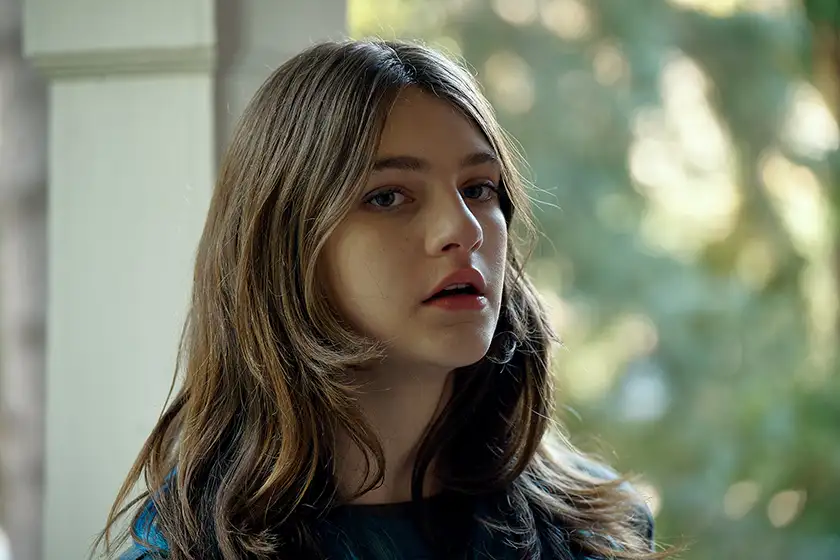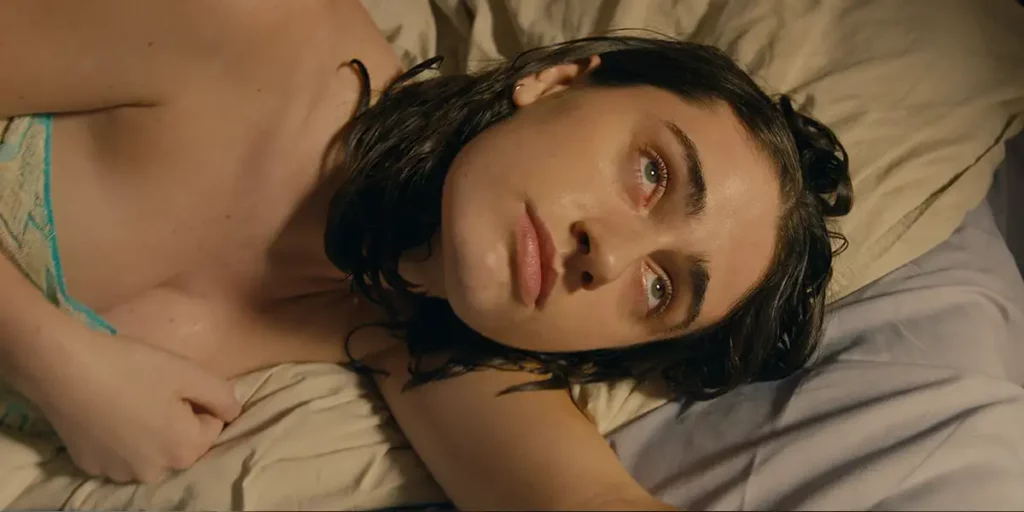Rachel Sennott takes a dramatic turn in writer/director Ally Pankiw’s I Used to Be Funny, which effectively touches on trauma in a different way.
Director: Ally Pankiw
Genre: Comedy, Drama
Run Time: 105′
US Release: June 7-14, 2024 in select theaters, June 18 on Digital
UK Release: June 7, 2024 in cinemas
When I Used to Be Funny was announced under its original title of Brooke & Sam, I was already in just because the film starred Rachel Sennott (of Bottoms). It is no secret that I consider Sennott to be one of the biggest young stars that Hollywood currently has. Reading the synopsis gave me the hope of seeing a new side of the actress along with massive amounts of intrigue for how this story would play out.
The trailer might have centered more on the jokes but make no mistake, writer/director Ally Pankiw does strike a good balance between comedy and drama throughout. This gives Rachel Sennott in particular familiar territory to work with while also pushing her towards a genre where she could also potentially excel. Audiences will see her typical charm and humor here, but Sennott gets them to look beyond that in I Used to Be Funny crafting a character who feels more vulnerable and genuine. Her performance makes this film worth buying a ticket for by itself, even though there is more that viewers will be discussing.
I Used to Be Funny centers on Sam Cowell (Rachel Sennott), a stand-up comedian living in Toronto who is struggling with post-traumatic stress disorder (PTSD) and its subsequent impact on her relationships and career. When Brooke Renner (Olga Petsa), a young girl whom she used to nanny, goes missing, Sam struggles with whether to join the search for her.
The character of Sam Cowell will be one that plenty of people should connect with. Especially those that are having a hard time figuring out what they want to do or feel their life has become stagnant in one way or another. Her struggles are right there on display for those of us that have been in the same shoes, even if she does not explicitly make them known to the people in her life. We see the toll that Sam’s PTSD is taking on her and feel deeply for what she is going through.
It is heartbreaking to watch at times, especially as the narrative unfolds the origins of said trauma. This is an issue that will seemingly always be topical and as both the writer and director, Ally Pankiw approaches the subject with not only passion, but a level of understanding and sensitivity. It would have been very easy to paint Sam in a negative light at certain points, but Pankiw refuses because she knows at her core, Sam is someone that has been through something, and what happened to her does not make her a bad person.
What I Used to Be Funny gives us instead is a story centered on this character, what she has been through, how she got to this point, and the impact that her trauma has had on her life. The dramatic beats hit hard, but are intercut with moments of comedic relief, either through Sam or those around her. This makes the film stand out from other depictions of trauma, because sometimes audiences are not given that break and it can make for a difficult watch. In a way, one could consider this to be a more realistic representation. Trauma never fully goes away, but there are those moments of happiness that feel like such a relief if you are struggling.
The screenplay also shows us how her trauma is impacting her friends and career without invalidating Sam’s feelings. That is where Brooke Renner truly comes into the picture, because Sam slowly builds a friendship with this young girl she nannies. We see how Brooke has struggles of her own that her father, Cameron (Jason Jones) seems unequipped to handle while Brooke’s mother is dealing with a hospital stay. Sam is there for Brooke, she might be getting paid, but their bond has very little to do with money. The two have such an impact on each other and seeing Sam’s trauma disrupt that is gut wrenching. Olga Petsa gives an outstanding performance as Brooke. She is one of the two heartbeats of this story along with Sennott as Sam and ultimately a young girl with a lot of joy when she opens up. However, Petsa also shows us through her acting that Brooke is a bit naive and has a lot of growing up to do, even if her mother being sick has expedited that process a tad.
Sennott and Petsa have excellent chemistry together, making it easy to not only understand why they were so close, but also making it hurt when their relationship becomes strained. Sam wants to help when Brooke goes missing, because she has a strong love for her, but helping also means revisiting a period that caused her a lot of pain. Said trauma already begins revealing itself once Sam learns that Brooke is missing, so how much more is it going to hurt her if she chooses to help? This is an internal debate that Sam has throughout the film before coming to a decision, one that Sennott manages to convey well whether that is through a look or an uneasy line delivery.
Their relationship and connection in I Used to Be Funny is one that helps Sam ultimately deal with her trauma and the impact it has had. Pankiw has weaved a tight, fascinating web of a screenplay with insightful commentary, laughs, and a bit of mystery. It shows not only all sides of trauma, but what it takes for a person to overcome it.

Rachel Sennott gives one of the most inspiring performances of 2024 as Sam. She is dynamic, able to switch from her signature comedic tone to being serious at any given moment. Her monologues would at times leave me in tears because she has made Sam come across as an authentic person that I can relate to. This film solidifies Sennott as an actress that can truly take whatever you can give her and make it work. She is a major part of why Sam’s arc is tremendous and ultimately cathartic. Pankiw and cinematographer Nina Djacic also shoot her beautifully. Seriously, there are some moments where Sennott looks angelic because of the way that she has been framed in the shot and how colors almost radiate off her.
There is a minor issue that I have with I Used to Be Funny that keeps it from the halls of excellence. At the start of the film, some viewers might find it difficult to keep up because of this narrative’s use of flashbacks. They make things feel slightly all over the place at first until you can get a handle on what Pankiw is going for.
I Used to Be Funny is such a good film, filled with drama, tension, laughter, and two fantastic leads. Rachel Sennott will leave you absolutely floored with her performance as Sam and the same can be said for Olga Petsa’s work as Brooke. However, this excellent, soul-stirring narrative is why you will wind up sticking around.
I Used to Be Funny will open in theaters in New York on June 7, 2024 followed by Los Angeles on June 14 and digital platforms from June 18.

